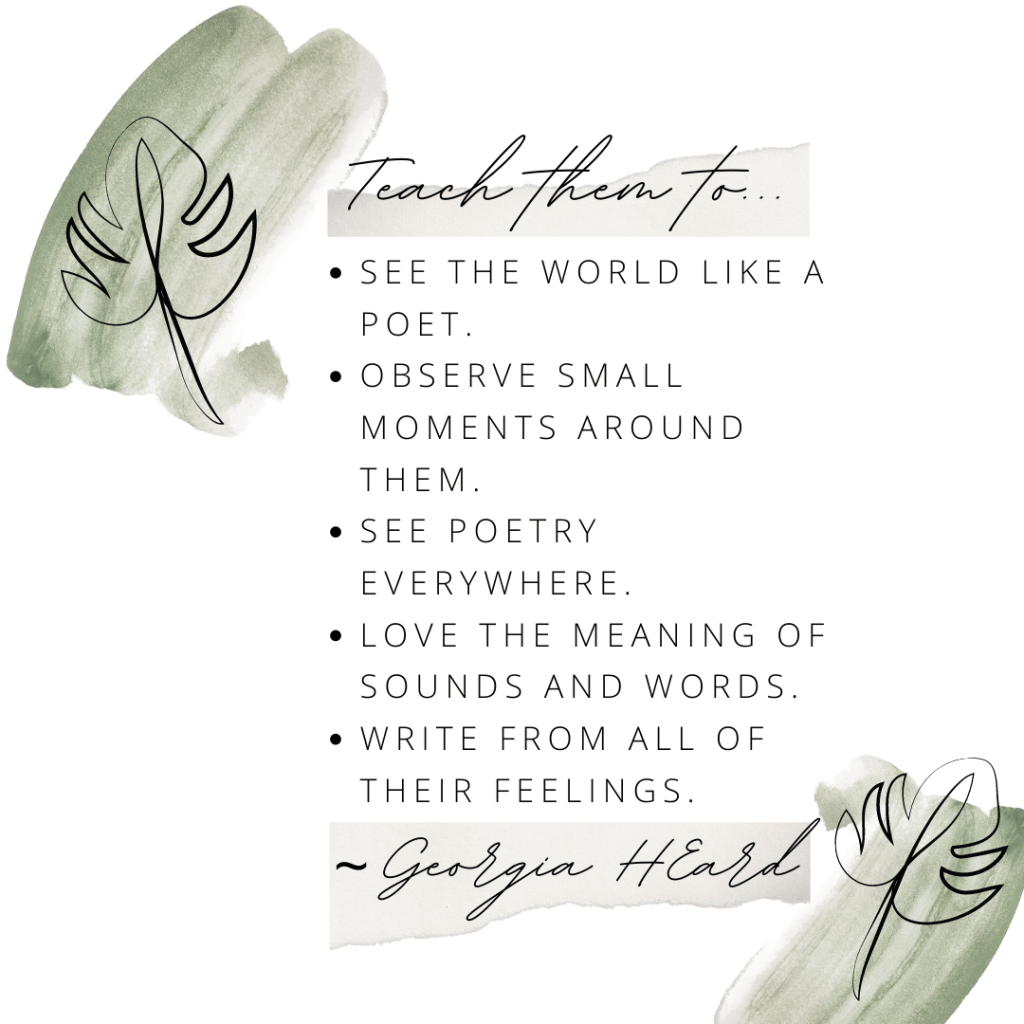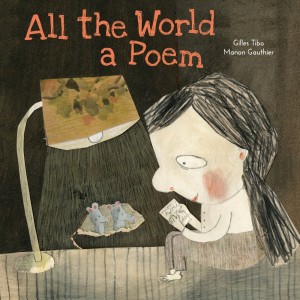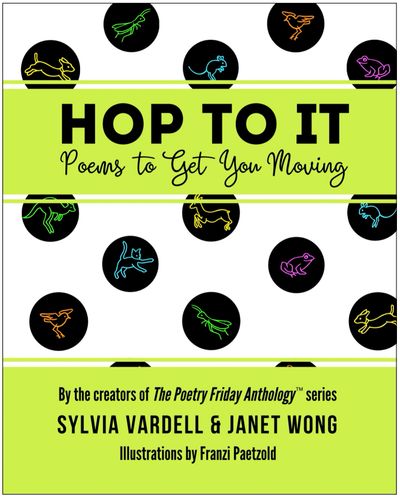Several years ago, I attended a conference session led by, Georgia Heard. I still refer back to the notes I took that day, and they are inspiring some of my plans as I head into a new school year.
Somehow I lucked out and have found myself starting a new chapter of my teaching career with seventh graders and a license to begin the year with poetry! I am beyond elated to weave connections of reading and writing poetry with these young minds. I also benefit from having taught these learners twice before and cannot wait to see where they are in their literacy lives.
I have written many posts dedicated to poetry here at Two Writing Teachers, and I wanted to share some tried and true tips that can adapt to any age group. Kids love poetry, and I can’t think of a better way to begin a year that continues to have some uncertainty than with something kids already love.
Teach them to see the world like a poet.
There are many poems that can help teachers make this connection, one book of poems I love to use with any age is titled, All the World A Poem, by Giles Tibbo. This Pajama Press publication has rhyming poems, nonrhyming poems, and playful language that connects to everyday events, feelings, and objects.
Using the link above, you can preview a few poems as mentors from this text. Reading poetry that takes the simplest topics from the world will help students find topics from their own spaces.
Teach them to observe small moments around them.
Through shared writing, model how to observe a small moment. Think back to the first day of school, or if that represents the present day — start there! So much happens. Consider modeling your thoughts around small ideas like:
When I arrived at school-I sat in my car.
Walking down the hall to the classroom.
Seeing someone for the first time in a long time.
The poem might timeline the moment in slow motion—each second is represented by a line that collectively signifies a short moment in time.
Teach them to see poetry everywhere.
One of my favorite ways to prove poetry can live anywhere is through ordinary object poetry. Seeing poetry within everyday moments, objects, and ideas helps students open up and expand their thinking. Take a look here for a lesson on jumpstarting a poem from an unexpected source.
Teach them to love the meaning of sounds and words.
One reason young writers love poetry is that the rules change. The idea that you can make up words, use sounds, and break convention rules with a purpose is fun and intriguing. How do we purposefully use sounds to represent meaning? Maybe start with one.
Begin with, “How could we spell a sound?” Let a sound be the spark for a poem. The sound becomes a word when we put letters together to represent it! It’s a way to animate an idea and kids love to get creative with sounds, words, and meaning when they are making the rules.
Teach them to write from all of their feelings.
You may already be familiar with Sylvia Vardell and Janet Wong’s series of Poetry Friday Anthologies. One more recent anthology is titled Hop to It: Poems to Get You Moving. This book, from Pomelo Books, tackles poems with current issues and complex ideas while getting learners up and moving to the words.
As I begin my new adventure with seventh graders this year, I’m looking forward to starting with poetry. We can go light or we can go heavy and both will have a powerful impact on writing within units to come.





I’ve always begun the year in fifth grade Language Arts with poetry. Georgia Heard has been a mentor to me for many years and I love her books. The same goes for Janet Wong and Sylvia Vardell. I have most of their Poetry books and just ordered Hop to It. I enjoyed reading this blog entry/article very much. The link you provided for Take a look here for a lesson on jumpstarting a poem does not take me to a lesson. It says I don’t have anything at WordPress. I was hoping that it could be corrected. Thanks! I can’t wait to begin with poetry.
LikeLike
Great post! Yes, poetry should be a way to entice readers to write from the heart, be creative and inventive!
LikeLike
Oh how I would love to join this family! How does one get into the Vardell, Wong anthologies?
Thank you for your inspirational poetry posts.
LikeLike